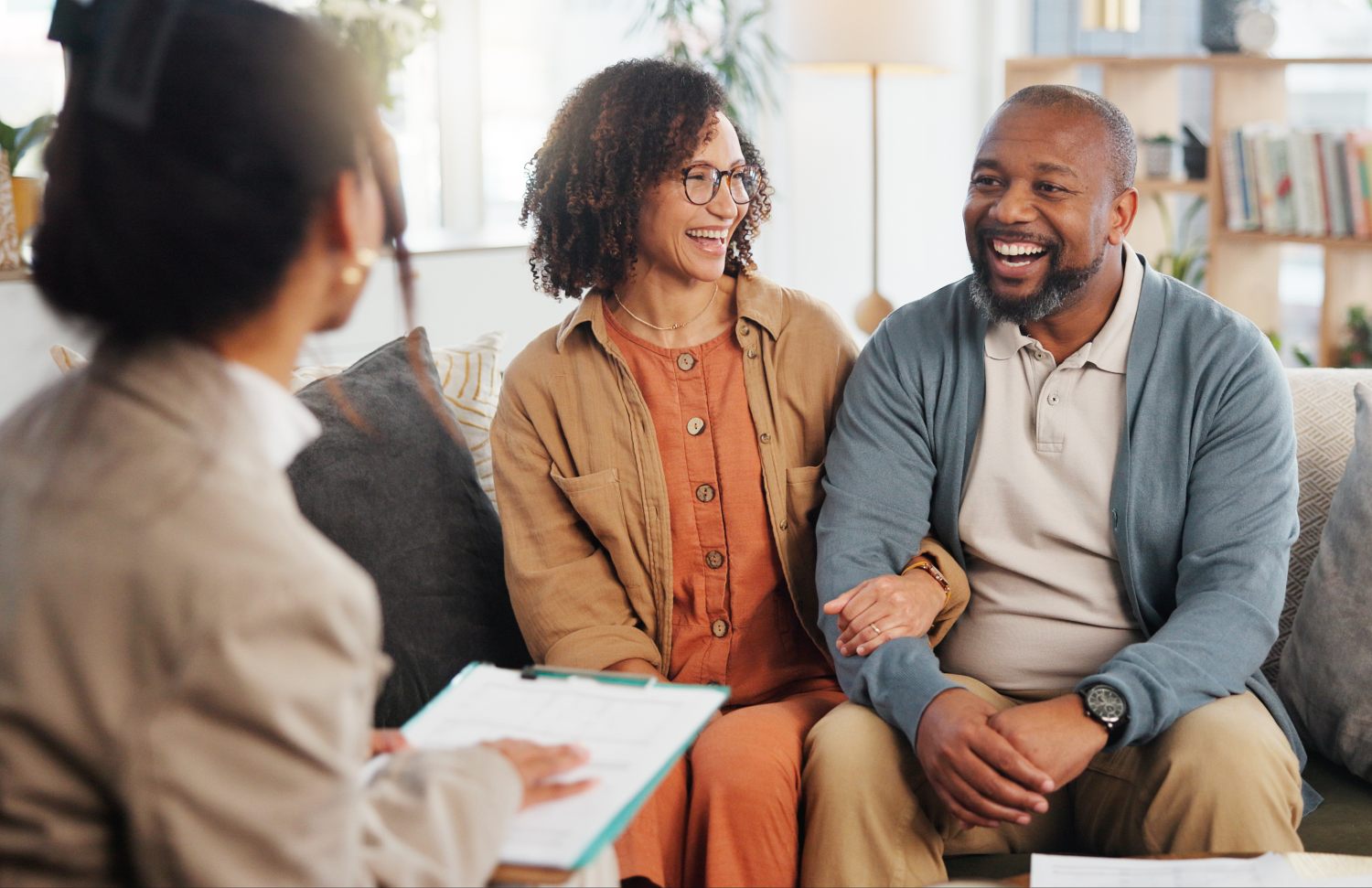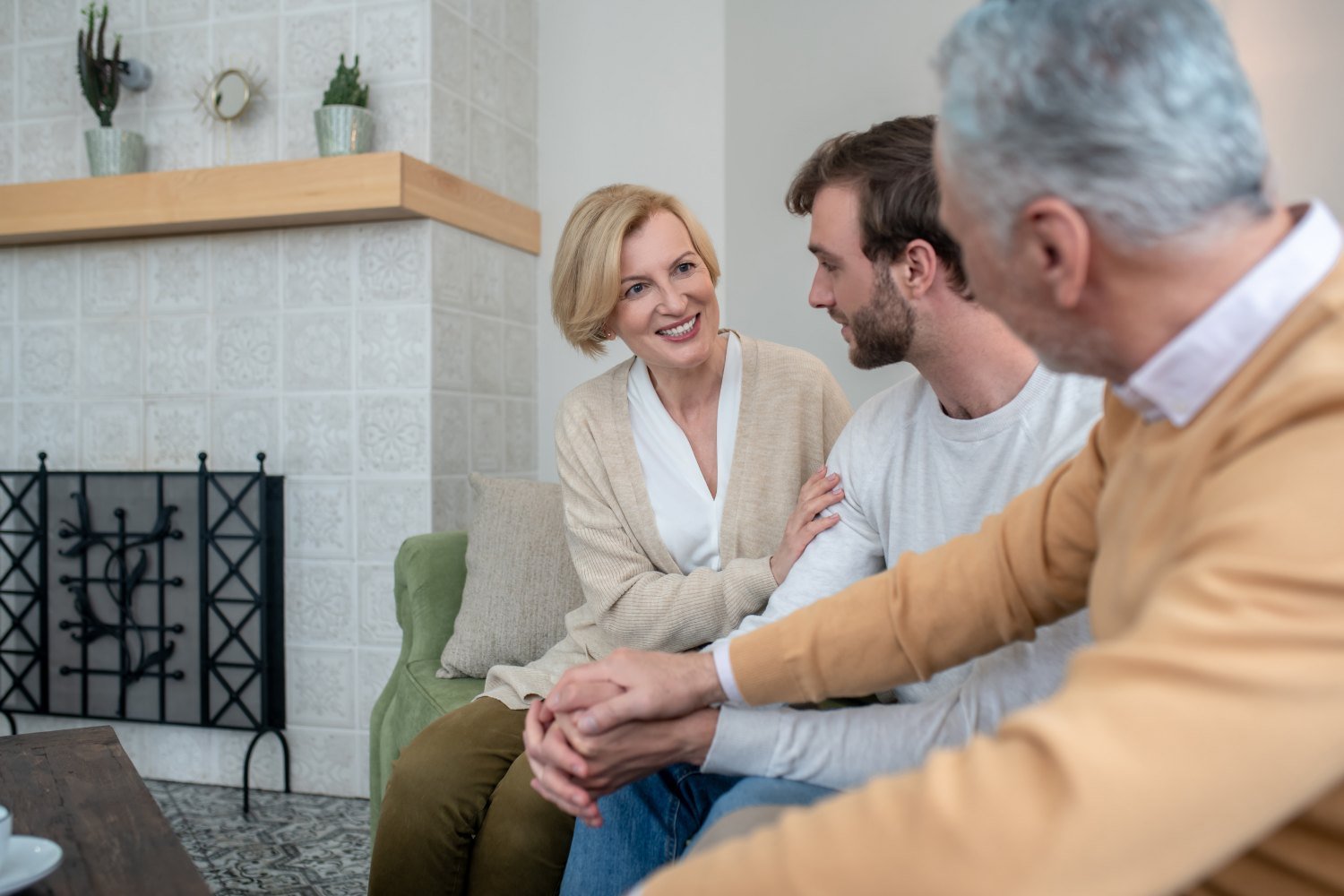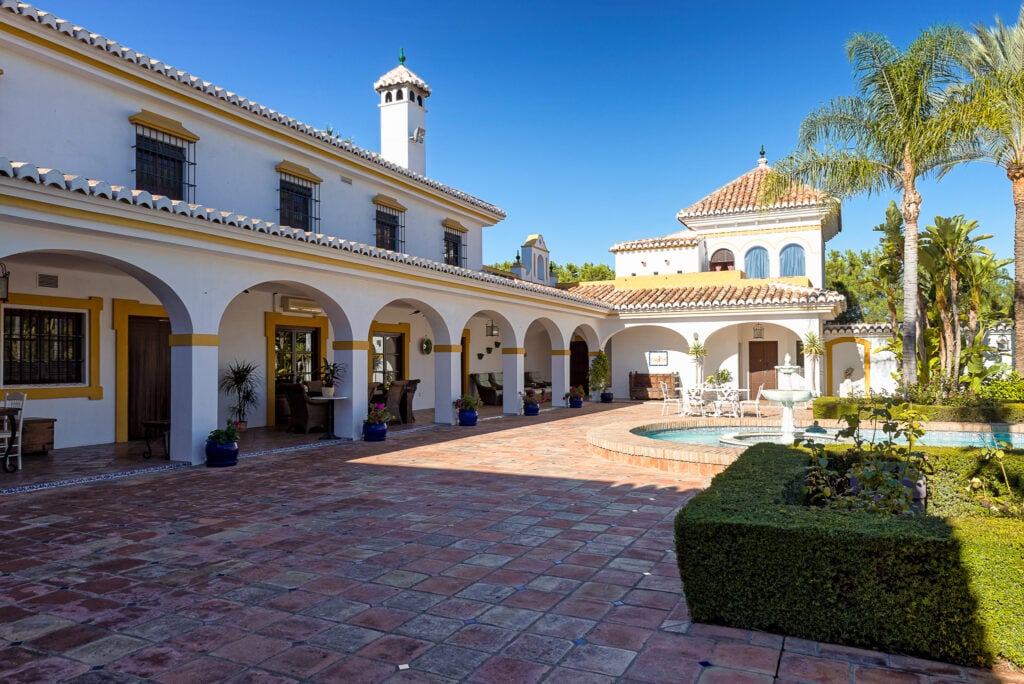It may come as no surprise to learn that addiction affects whole family units and not just the individual.
In fact, within recovery circles, addiction is understood as a family disease, with each person having their own challenges and experiences within the dynamic.
This is one of many reasons why, at our rehab centre in Spain, we provide a comprehensive family programme as part of addiction treatment, offering individuals and their loved ones the chance to learn more about:
- The impact of addiction on individuals and loved ones.
- The importance of setting healthy boundaries within the family.
- Why personal accountability is vital in recovery, preventing enabling behaviours, which can fuel addiction or lead to relapse.
- Our family therapy sessions are meticulously designed to foster trust and open communication, creating a safe and supportive environment free from any sense of shame or judgement.
- aking care of your own health and well-being, particularly during times of stress or crisis.
At Camino Recovery, we understand the inherent value of support systems, especially for those dealing with substance abuse or other mental health issues like trauma and depression.
These programmes are one of the most powerful tools for people in recovery, helping to rebuild trust, improve communication, and create a safe and supportive environment that makes healing possible.
Now, let’s explore the concept of family therapy in addiction treatment.
What is family therapy?

Depending on the rehab centre you choose, you may come across different terms for family therapy.
For instance, some inpatient centres refer to these programmes as ‘family support’, ‘family counselling’, ‘family systems therapy’, or ‘family programmes’, which is the term we use to describe this approach.
Family therapy involves bringing family members or loved ones together in a safe, supportive setting to facilitate recovery.
The primary goal is to explore relational dynamics and boundaries, as well as heal old emotional wounds and create healthier ways of interacting.
Each family programme will be different depending on the individual and the type of inpatient treatment centre, but typically includes:
- Psychoeducation.
- Boundary-setting.
- Communication exercises.
- Specialised approaches such as family behaviour therapy or CRAFT.
Why family therapy matters in addiction treatment
Family therapy is a vital component of addiction treatment because it explores and addresses the profound impact of addiction on the entire family and the relational struggles of each individual.
This approach allows families affected by addiction to look at ways to strengthen relationships, improve trust and communication, and understand why compassion and empathy are key to helping their loved one recover.
Family programmes provide a safe and structured setting for families to openly discuss their feelings, concerns, and individual experiences, which, when expressed without shame or blame, can lead to recovery.
The keyword in that sentence is ‘structured,’ as those who struggle with addiction often live in chaos where there is no routine and everything feels scattered and out of control.
Here are some additional reasons why family therapy is essential in addiction treatment.
- It strengthens support systems. When family members and relatives understand addiction more, it allows them to offer their loved one a deeper level of encouragement and support once they leave inpatient treatment.
- It reduces the risk of relapse. Healthier boundaries, improved communication, and educated family members can all help to lower the risk of relapse and reduce triggers once their loved one returns home.
- It improves mental health within the family unit. Addiction can create various challenges for families, affecting each person in different ways. Family therapy can help individuals manage stress, anxiety, depression, and other complications that can arise due to a loved one’s addiction.
- Improved family functioning. When families learn to recognise enabling behaviours and addiction symptoms, the relational dynamics become healthier and more supportive, leading to positive change and enhanced recovery outcomes.
What family therapy involves

Family therapy provides families with essential tools to help support their loved one’s recovery journey while taking care of their own well-being, such as:
- Cognitive behavioural therapy – Helps individuals and families explore unhelpful thoughts and behaviours, leading to lasting positive change.
- Narrative therapy – Explores the internal stories or narratives each family member holds, allowing them to separate the person from the addiction by externalising the problem.
It may also include:
- Counsellor facilitated family conferences.
- Group therapy and interactive discussions.
How family therapy works at Camino Recovery
As mentioned, family therapy programmes will vary depending on the individual and their chosen rehab centre.
At our inpatient centre in Spain, we offer practical, compassionate, and tailored family programmes that cater to the unique needs and preferences of each individual, making you feel truly understood and valued.
Here’s how we facilitate family therapy at Camino Recovery:
Initial assessment
We usually begin our programmes with a personalised, comprehensive assessment to help us understand your family history, relationships, and current areas of conflict (if any).
This phase of treatment helps us get a clearer picture of your family dynamics, allowing our team to customise therapy sessions accordingly.
Psychoeducation for families
Another key aspect of family therapy is addiction education, where families learn what addiction is, how it can affect behaviour and the brain, and what enabling vs. helping means.
Psychoeducation can also help reduce shame and blame, making space for compassion and empathy.
Joint sessions
Joint sessions involve the individual and their family meeting together on a weekly or biweekly basis, where they can explore dynamics, share feelings and experiences, understand triggers, and work together to improve communication.
Boundary setting and coping techniques
At Camino Recovery, we help families understand and define healthy boundaries. This may involve learning how to support your loved one without enabling substance use.
We also teach families healthy coping strategies so they can better manage their well-being as their loved one navigates recovery.
This may include self-care practices such as yoga, mindfulness and taking time for yourself.
It may also involve individual therapy sessions where you are given a safe space to express any emotions or experiences in a one-to-one setting.
Aftercare and follow-up support
All our programmes include aftercare support, which involves follow-up sessions and other forms of support to help individuals and their loved ones maintain their recovery at home.
Recovery doesn’t end just because someone leaves our centre; therefore, we offer continued family care and support to help families integrate in healthy ways after inpatient treatment.
What you can expect from our treatment centre in Spain




Starting treatment for the first time can be daunting, so it’s helpful to know what to expect as you begin the recovery process.
Here’s what you can expect when you arrive at our addiction treatment centre in Spain for the first time:
- A warm welcome and introduction from our experienced team of professionals.
- Therapy is led by experienced therapists trained in addiction treatment and trauma-informed care.
- A treatment experience that is respectful, inclusive, safe, and culturally sensitive. A compassionate setting where all family members’ voices are heard and feel safe to speak their truth.
- A compassionate treatment team. You’ll likely feel uncomfortable at times. For instance, feelings of shame, anger, guilt or even grief may come up occasionally, which are all part of recovery.
At Camino Recovery, our family programme is designed to cultivate your healing journey and overall well-being.
Through compassionate education and support, you’ll learn that you cannot ‘fix’ or cure your loved one. That’s your loved one’s responsibility and theirs alone.
Instead, you can take responsibility for your own health and happiness while offering your loved one genuine support and empathy in a healthy, empowering way.
This approach ensures that your loved one remains accountable for their own choices and behaviours while feeling supported, which are key aspects in long-term sobriety.
What ‘family’ means in recovery
Most rehab centres in Spain, in fact, all around the world, understand that family can mean different things to different people.
In family therapy, ‘family’ is a term that is used to describe any group of people who care for each other and see themselves as family.
This approach is part of being trauma-informed, as not everyone wants to be connected to their blood relatives, giving individuals choice, preference and empowerment as they navigate their unique recovery journeys.
What to do next
If you or a loved one is struggling with addiction or other mental health challenges and would like to explore family therapy or other treatment, contact our professional team in Spain today, who can help.
Camino Recovery provides a range of addiction treatment programmes, including family therapy, to individuals seeking long-term recovery from the effects of substance use.
Whether you are calling for yourself or a loved one, you do not need to face these struggles alone.
Our compassionate team is always here to provide the information and support you need to begin feeling better and rebuilding your life free from substances.
Remember, we are in this together.
Don specialised in addiction studies, earning an MDiv and a master's in Management, Administration, and Counseling. As a priest, he supported Step 5s in local treatment centers for nearly 40 years, excelling in "family systems work" in the addiction field.
Additionally, Don pioneered equine-assisted psychotherapy (EAP) in the US and UK during the 1990s. He authored "Equine Utilized Psychotherapy: Dance with those that run with laughter" and gained media recognition, including appearances on 'the Trisha Show' and features in The Daily Telegraph.
In the early 2000s, Don and his wife, Meena, founded Camino Recovery in Spain, providing tailored addiction treatment programs aimed at fostering happier lives.



